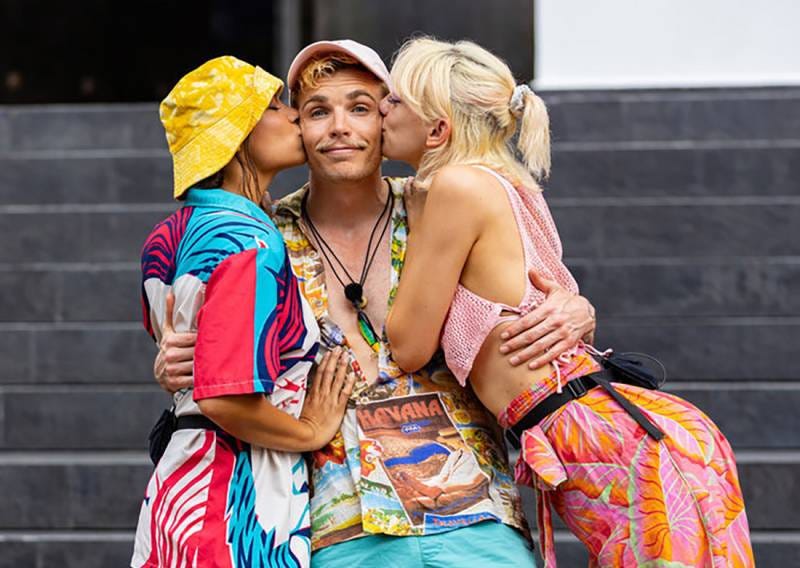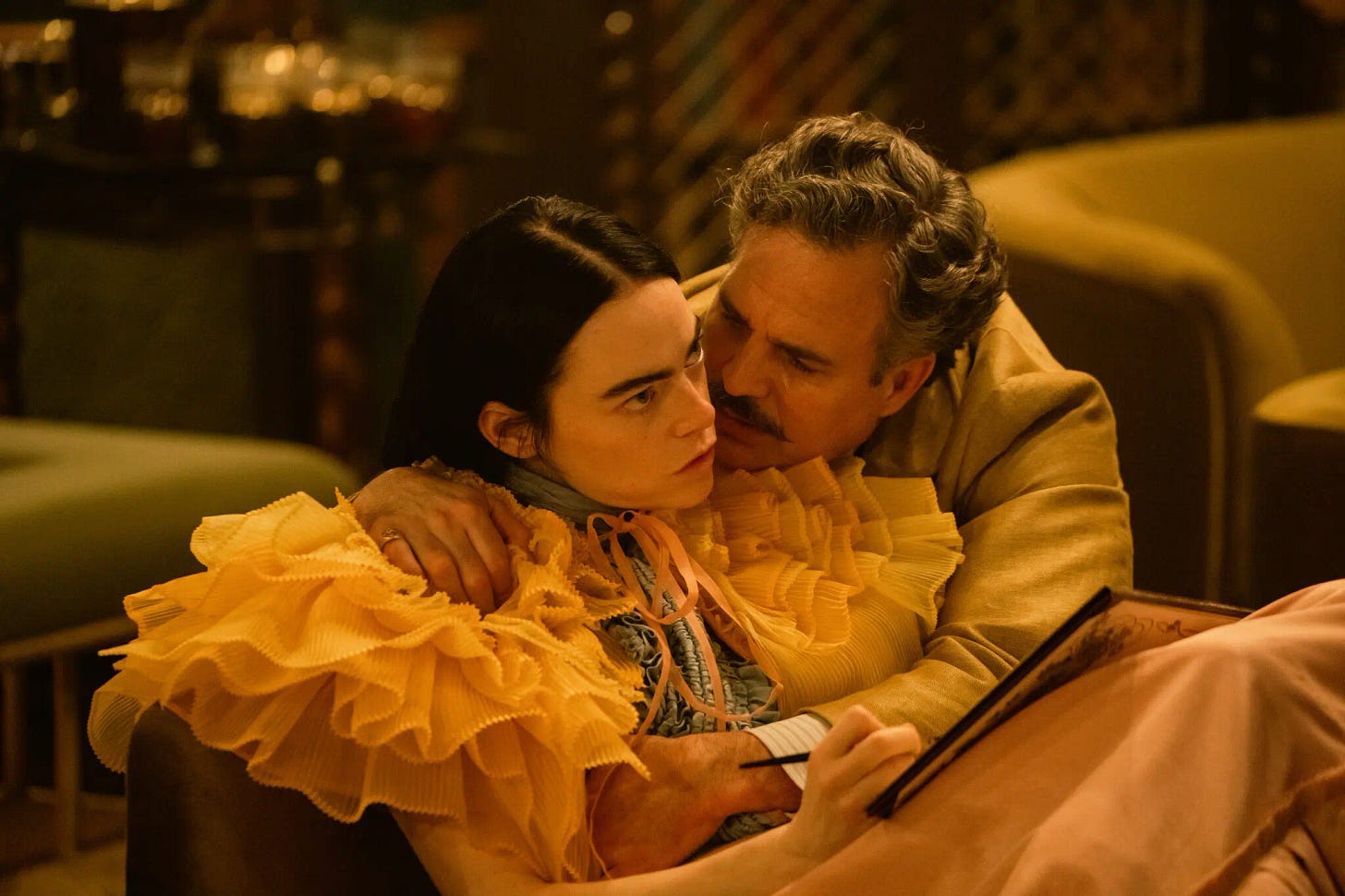Deconstructing Toxic Monogamy: A Critical Look at Pop Culture's Recent Portrayals of Non-Monogamous Relationships
Redefining non-monogamy amidst mainstream media's recent misconceptions (Plus: a free workshop TONIGHT to practice a more intentional approach)
Non-monogamy is trending in American pop-culture, with recent coverage in mainstream media in outlets like Vogue, The Washington Post, NPR, The Atlantic, and Time, though the narrative often falls short, depicting harmful stereotypes and misconceptions. From misguided opinion pieces to sensationalized reality TV shows, the portrayal of non-monogamy is riddled with misunderstandings rooted in the wider cultural practice of toxic monogamy which often celebrates an unhealthy desire to control a partner's body, time and energy and perpetuates possessiveness, jealousy, and the prioritization of romantic partnerships above all other relationships.
As a former journalist and writer with over a decade of personal experience in non-monogamous and polyamorous relationships, I aim to shed light on some of the problematic narratives that pop culture is perpetuating, and provide a clearer perspective on the ethos of intentional communication and care that underpins my approach to consensual non-monogamy.
As evidenced by recent studies, traditional monogamy isn't fulfilling the needs of a significant portion of the population. The statistics speak volumes: a Match 2023 survey shows that nearly one-third of singles have experienced a non-monogamous relationship. Moreover, with over half of Americans in monogamous relationships reporting experiences of infidelity, it's time to acknowledge that the current monogamous relationship ideal is not working for everyone (source: YouGov 2022 survey). There’s a clear need for ethical alternatives to cheating.
Yet, despite this growing interest in alternative relationship structures, media coverage often misses the mark. Take, for example, the January New York Magazine cover story. I loved the clever family portrait-style image of four cuddly cats by Maurizio Cattelan and Pierpaolo Ferrari, but when I dug into the feature article, I was disappointed to find that it’s full of projected insecurities on an imagined experience: “I imagine what it would be like, how destabilizing to watch your partner grow closer and more intimate and happier with another person; how impossible it sounds to really keep the foundation of your own relationship and your own self from getting totally rocked.”
Our culture makes it easy to fall into this kind of narrow, couple-centric framework that assumes our partners are an extension of ourselves, and that them finding happiness in someone outside of us is a threat. This jealous, competitive narrative fails to recognize the potential for growth and fulfillment that non-monogamy offers when approached with health differentiation between partners, plus an open mind and the spirit of growth and collaboration.
Similarly, the recent Washington Post opinion article by Professor Shadi Hamid makes a lot of the same assumptions of equating love with possession: “If you love someone, how realistic is it that you will want to “share” that person with someone else?” he writes. Again, the idea of “sharing” is a toxic monogamous mindset that assumes that we own the people we love, rather than seeing them as autonomous beings with their own desires, needs, and agency (which may or may not always include us). For some, love may indeed include a desire for exclusivity and monogamy, while for others, it may involve non-monogamous arrangements or polyamory.
The most egregious article was The Atlantic's dismissal of polyamory as a "fad of the ruling class," which demonstrates a profound misunderstanding of its cultural significance. For many marginalized communities, polyamory is not a luxury but a means of survival, providing shared resources and kinship beyond traditional family structures (and also serving as a barrier of support against systemic oppression that often fails to provide for the needs of LGBTQIA+ communities).
Print isn’t the only medium covering non-monogamy in questionable ways. In the case of the new, trashy, reality TV show Couple to Throuple, non-monogamy is depicted as a weird mix of competition, couple’s privilege, and unicorn hunting designed to create drama, not healthy, interdependent relationships.
Above, Denyse, left, Wilder, and Corey in the ‘Communication’ episode of ‘Couple to Throuple.’. (Paul Castillero/ Peacock)
The new Yorgos Lanthimos film "Poor Things," was a refreshing and provocative breath of fresh air in the recent media landscape: Emma Stone’s sex-positive character, Bella Baxter, unabashedly asks for and pursues what she desires in a patriarchal culture that aims to cage her free spirit. There’s nothing consensual about any of the interpersonal dynamics between Bella and the many male captors who attempt to control and seduce her, but Bella’s lack of shame defies cultural norms, challenging viewers to reconsider preconceptions about pleasure and fidelity.
Atsushi Nishijima/Searchlight Pictures
Bella asks "Marriage or murder, is that the proposal?" after the lustful Duncan Wedderburn, played by Mark Ruffalo, attempts to legally claim her as his possession after locking her in a chest and shipping them both to sea without her consent. The real question she seemed to be asking was “Monogamy or murder” — At its core, the film challenges the notion that women should be confined to monogamous relationships with men whose sole goal seems to be restricting their bodies and brains (Wedderburn throws her books into the sea when he realizes she is learning to become more independent and less controllable). His inability to keep Bella all to himself eventually drives him to madness, highlighting the threat that female pleasure poses to the patriarchal status quo. With stellar performances and striking visuals, the film offers a compelling commentary on sexual liberation and gender inequality while shedding light on unhealthy, power dynamics in romantic relationships.
Looking around at these current mainstream conversations about non-monogamy, I see a need for us as a collective to focus on the intentional dismantling of toxic monogamy. To be clear: I’m definitely not advocating that everyone become non-monogamous; but I do see a need for our culture to examine the ways in which control and manipulation are often confused as signs of love, and the assumption that non-monogamy is merely a more complicated power struggle. Why do we continue to perpetuate the narrative that a romantic partner should own and be possessive of all of our time, attention, and affection? Monogamous norms are often a justification for controlling behaviors, while subtly perpetuating the notion that love is a competition where there are winners and losers.
Instead, I see non-monogamy as a practice of moving towards more expansive networks of love, and ultimately, liberation. It’s a practice of healthy differentiation from our partner, where we begin to see them not as part of us, but as a sovereign being. Rather than operating from a place of enmeshment and entitlement, we remember that being in relationship with others is about choice — we get to choose how and when and how much time we spend time with one another, rather than assuming someone else’s time, body, and energy is ours for the taking. Consensual non-monogamy is about challenging outdated norms and empowering individuals to seek relationships that honor their true needs and desires, not the predefined scripts of how we’re “supposed” to relate to each other (or control one another’s behaviors).
As more mainstream media attempts to portray non-monogamy as synonymous with competition and drama, it’s important that actual polyamorous and non-monogamous people challenge these representations through thoughtful discourse and analysis of the media, in an effort to foster a more inclusive and understanding society that embraces diverse relationship structures, values individual agency, and promotes gender equality.
The culture I’m interested in perpetuating (through non-monogamous relationship coaching, writing, and community events) is around intentional communication and care, not competition. I practice polyamory because I believe in mutualism: creating a strong web of mutually beneficial community support and love around me and my ecosystem of friends, lovers, collaborators, partners (while also taking care of the landscapes we inhabit and the other species that exist here).
If you enjoyed this analysis, consider subscribing to get access to subscriber-only content, delivered every Tuesday:
Free Somatic Coaching Workshop Tonight (Online!)
Don’t miss tonight’s free workshop at 6:30PM (PST): I’m offering a Somatic Centering practice, reflection questions, and giving away one free private coaching session as part of this preview of my upcoming 12 week group-coaching program, Nourishing Non-Monogamy (launching March 19th)!






